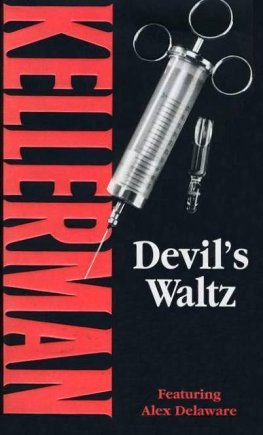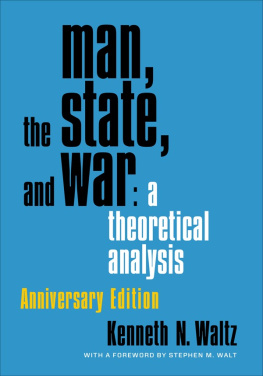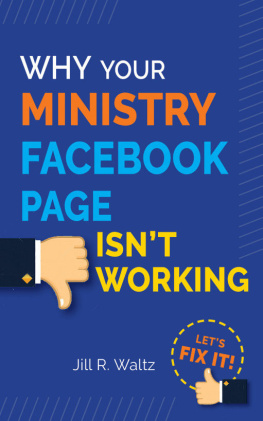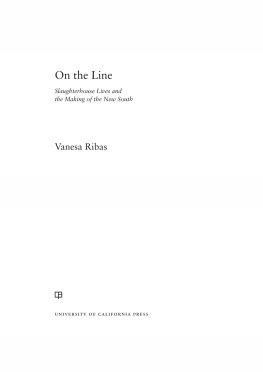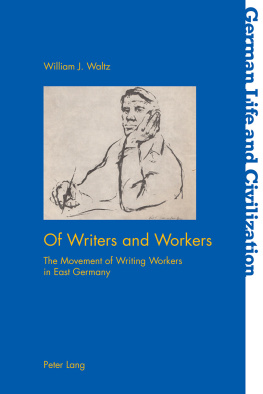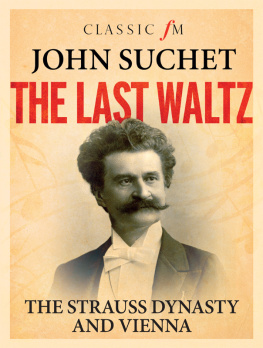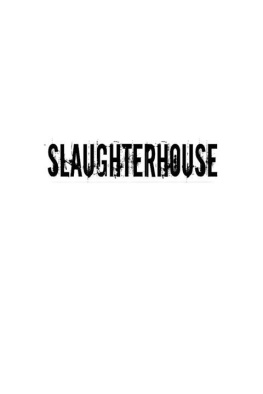HOG WILD
HOG WILD
THE BATTLE FOR WORKERS RIGHTS AT THE WORLDS LARGEST SLAUGHTERHOUSE
Lynn Waltz
UNIVERSITY OF IOWA PRESS
IOWA CITY
University of Iowa Press, Iowa City 52242
Copyright 2018 by the University of Iowa Press
www.uipress.uiowa.edu
Printed in the United States of America
Design by April Leidig
No part of this book may be reproduced or used in any form or by any means without permission in writing from the publisher. All reasonable steps have been taken to contact copyright holders of material used in this book. The publisher would be pleased to make suitable arrangements with any whom it has not been possible to reach.
The University of Iowa Press is a member of Green Press
Initiative and is committed to preserving natural resources.
Printed on acid-free paper
ISBN 978-1-60938-585-9 (pbk)
ISBN 978-1-60938-586-6 (ebk)
Cataloging-in-Publication data is on file with the Library of Congress.
As always, for Sophie and Zoe
CONTENTS
ACKNOWLEDGMENTS
SPECIAL THANKS TO Sherri Buffkin and Gene Bruskin for their courage in speaking out and ensuring this story could be told, and to Jasper Brown, Keith Ludlum, and others who generously gave of their time. Also, without the hard work of journalists, particularly those at the Fayetteville Observer and the News & Observer, who documented the actions of Smithfield Foods and Smithfield Packing, this book would not have been possible. Thanks also to the staff at the National Labor Relations Board for their labors in providing thousands of pages of documentation in searchable form.
To my primary editor at the University of Iowa Press, Catherine Cocks, I owe a great debt for her hours of patient counsel and editing to bring the manuscript along. Thanks also to editor Ranjit Arab for his help in making final editorial decisions and to Meredith Stabel and the staff at the press for all their hard work in bringing the manuscript to fruition. Special thanks to copyeditor Christine Gever, whose attention to detail is truly remarkable.
Thanks to videographer and editor Sherry DiBari, whose insights and eagle-eye view were invaluable, and to photographer and professor Dr. Michael DiBari Jr., without whose humor, generosity, and goodwill I could not have prevailed. Thanks also to journalism professor and writer Wayne J. Dawkins for his early read and steadily encouraging words.
Appreciation goes out to author and professor Michael Pearson at Old Dominion University and to author Blake Bailey for their guidance on the thesis that preceded this book. And to Buzz Bissinger, who altered my lifes course into journalism many years ago.
To my daughters Sophie and Zoe, it is difficult to know how to extend thanks for the many hours stolen from evenings, weekends, holidays, and summers, but sincere thanks for the readings, edits, and advice, and most of all, for excelling independently all the while.
PREFACE
MY INTRODUCTION TO Smithfield Foods and its questionable practices came in 2004, while on a freelance assignment for Virginia Business. The resulting article, published in 2005, covered the companys legal problems with the National Labor Relations Board (NLRB) over firing union supporters at its plant in Tar Heel, North Carolina, the largest slaughterhouse in the world. It also looked at Smithfields continued appeals of NLRB rulings and its resistance to state and federal environmental laws, which resulted in a $12.6 million federal fine, the EPAs largest at that time. The article outlined environmental problems the companys factory farms and contract farms were causing in North Carolina and contextualized Smithfields overall dominance and rapid growth within the industry.
For that piece, I interviewed environmental activist Robert F. Kennedy Jr., who was fighting Smithfields expansion in Poland while also trying to stop its environmental violations at home and elsewhere abroad. Kennedy believes that Smithfield outsources the true cost of its business onto its workers and the citizens in terms of environmental cleanup costs and loss of quality of life. He says that Smithfield turned the state of North Carolina into a company town.
In August of 2004, I had gone to company headquarters in Smithfield, Virginia, to interview Joseph Luter IV, then an executive vice president of Smithfield Foods, who told me that governmental and environmental restraints were limiting growth opportunities. I also spoke with Larry Pope, then president and chief operating officer of Smithfield, who said that the company was committed to the highest principles of food, environmental, and worker safety. Pope said several times that they were not the bad guysin the United States or in Poland.
While there, I toured Smithfields Gwaltney plant, the only time Ive been in a slaughterhouse. The memories are visceral. The roar of the machinery. The deep cold. The hogs heads floating by. The smocks, rubber shoes, gloves, and hairnets. The rows of workers with large, wickedly sharp knives whacking off slices of meat from huge slabs. The blood. And the smell. The smell that clung to my suit.
In 2005, I wrote a second article, this time for Portfolio Weekly. I went to the Smithfield Packing slaughterhouse in Tar Heel to see firsthand what was happening with the labor controversy there. I did ride-alongs with several union organizers and attended their morning meetings and public events. I interviewed local campaign organizer Eduardo Pea and Lance Compa, a labor studies professor from Cornell University, who had just published a Human Rights Watch report on worker abuses in the nations beef, pork, and poultry plants. I interviewed workers about their injuries on the job and a very busy workers compensation lawyer. I was able to further dramatize some of the events inside the plant based on a 436-page ruling of a nine-month hearing into the labor issues, written by nlrb judge John West. I also interviewed Smithfield attorney Greg Robertson, who said the company was appealing the judges decision because it was not an accurate reflection of Smithfields labor practices or what had happened.
But there was one major source I had not been able to track down: whistleblower Sherri Buffkin. It was her testimony, as a former member of Smithfield management, that was key to the NLRBs case against the company. I had been able to quote her testimony before the Senate Committee on Health, Education, Labor and Pensions, but I knew she had much more to say.
In 2008, when I began working on my master of fine arts degree at Old Dominion University, the Smithfield Foods case was still ongoing, so I made it the focus of my thesis project. I knew I had to find the elusive Buffkin, who lived in rural North Carolina. On a Sunday afternoon in mid-February 2011, with the help of former union organizer Dan English, I found my way to her doorstep.
Buffkin didnt want to talk. She opened her front door a slit. Ive put all that behind me, she said. Her big dog Samo stuck his head into the slit, his booming voice making it hard to hear. I told her I knew how difficult it must have been for her to testify against her former employer. I told her that even if she didnt want to talk, it was an honor to meet someone who had taken on Smithfield Foods and won. She let the dog out, had a cigarette, then invited me in for just a minute. Several hours later, I walked out and headed back to Norfolk. That began a series of telephone conversations, with what would best be described as a reluctant participant. She was one of many.
I knew working on this book would be tricky even before I started it. Almost all the court records were sealed from Smithfields racketeering (RICO) lawsuit against the United Food and Commercial Workers International Union (UFCW), settled in October of 2008. Furthermore, both Smithfield Foods and the UFCW rigidly interpreted the judges order to not disparage the other party as a de facto gag order; both cited the order in declining to participate in this book. Nonetheless, I made multiple attempts to reach significant figures independently. In most cases, they either did not respond or declined to comment. Neither the UFCW nor Smithfield accommodated my requests for interviews with current or former employees, including former CEO Joe Luter III and plant manager Jere Null, who plays a key role in this story.
Next page

